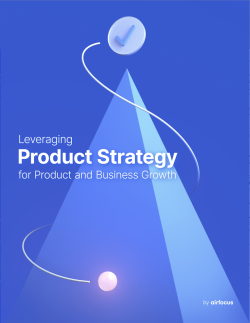Value Stream Management
What is value stream management?
Value stream management definition
Value stream management is a business practice that determines the number of resources and the value of delivery efforts and software development. Additionally, it improves workflow and manages and monitors the software delivery cycle from one end to another. Instead of examining and identifying features and functions, it finds value streams and measures software delivery rate of success, allowing teams to channel more energy on what works.
In other words, value streams reveal complex processes, making them extra visible and, if needed, prepare you to pivot to generate more value for the business customer.
Value stream management can offer a unique perspective of the software delivery cycle by analyzing customer experience. It aligns business objectives through agile scaling to DevOps changes and transformations and helps to increase and optimize the flow of company value from end to end.
For example, business goals are often kept at a distance from software development activities. Value stream management aligns software development with business goals. It analyzes what is going on in your company and how the software teams’ work supports the business.
What does value stream mean?
A value stream is the set of actions that add value to a customer. These actions are present from the initial concept, through development, all the way up to delivery. Managing these value streams from one end to another is done through operational silos between teams and tools. Teams can analyze the workflow across all organizational processes in real-time by uniting toolchains with value stream platforms. This way, value streams see the customer as the key to solving all issues.
Why is value stream management important?
Some of the reasons why a value stream management (VSM) approach is so important are:
It detects inefficient areas by finding real-time value for customers.
VSM gives you accurate views of lead time, output, and cycle time.
It helps you base your actions on a single source of truth.
VSM creates transparency between DevOps teams.
It promotes better communication between leadership and IT.
It helps you make predictions for the future of the business and make long-term improvements.
VSM helps you find more realistic goals.
What is DevOps value stream management?
DevOps value stream management is the key to improving transparency, inspection, adaptation, and connections between technology, processes, and people. Although many businesses are not successful in adopting DevOps, the fact remains that this is the standard for delivering software and its maintenance. However, it is impossible to upgrade the value stream without connecting value realization and deployment.
Examples of value stream management software
GitLab - GitLab unifies the whole DevOps toolchain into one application. Integrations don’t need to be managed, API chokepoints don’t limit visibility, and everyone in the business can be a part of the app.
Ospera - with Ospera, you can automate all CI/CD toolchains without knowing any coding and build pipeline workflows such as security scans, deployments, unit testing, and software builds.
airfocus - airfocus is the first modular product management software that allows you to collaborate on your product strategy with the rest of your teams and gather fresh perspectives from stakeholders and teams.
General FAQ

Glossary categories
Create effective product strategy

Experience the new way of doing product management








